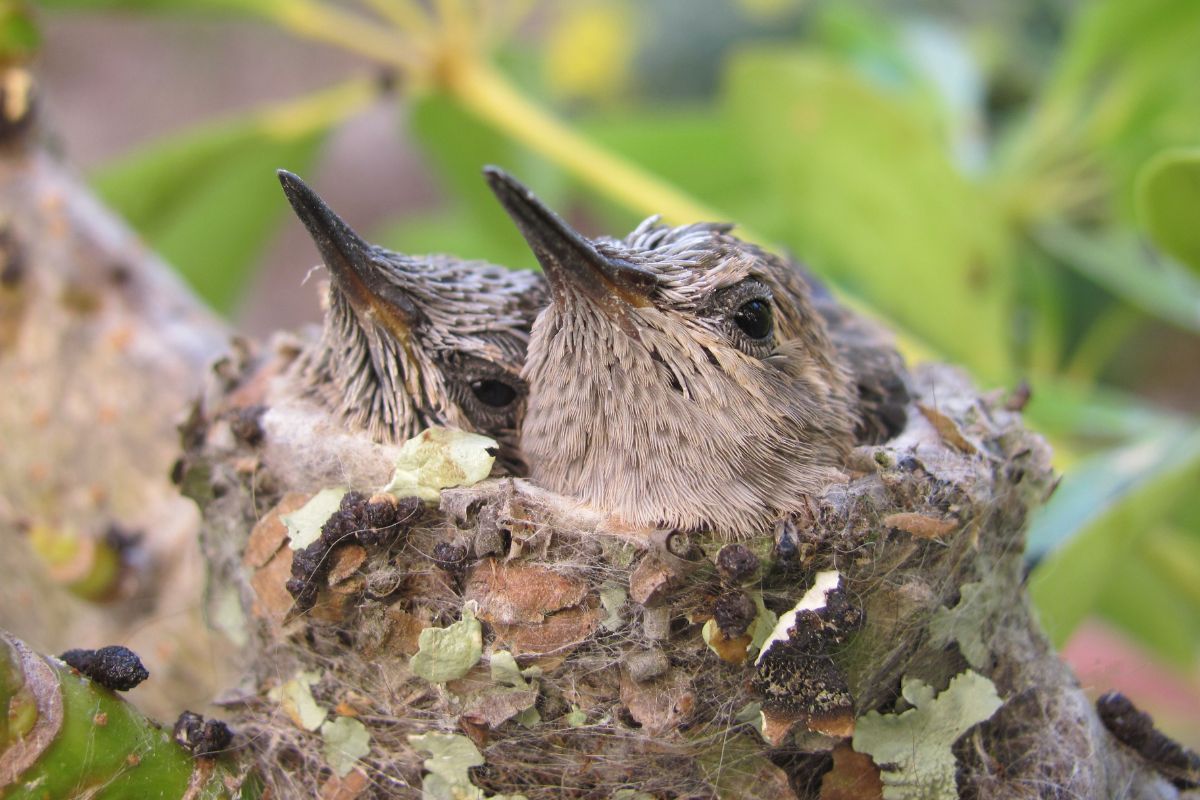Do mother hummingbirds abandon their babies? Find out below.
While every bird’s nest is a testament to nature’s incredible artistry, there is something truly special about the nests made by hummingbirds. These beautiful birds can be found exclusively in America and in no other country in the world, although the vast majority of the approximately 330 species never go further north than Central and South America.
We all know the saying “a mother’s work is never done,” mothers are queens who carry a great burden on their shoulders while raising their young. However, what about these unique little creatures? Do mother hummingbirds abandon their babies? Here’s what to know about this topic.
The Mother Does All The Work
In the world of birds, there are all sorts of parenting arrangements and everything differs from species to species. When it comes to hummingbirds, the main task of the male is to fight with other males, protect flowers, fight over the feeder, and look marvelous.
After winning the female’s attention and impregnating her, he has served his purpose and that is also the last time they see each other. Sounds a bit unbelievable doesn’t it? From this we can conclude that hummingbirds don’t mate for life, moreover, they don’t even stay together during the nesting season!
Gute Hummingbird Houses for Outside Hanging, Natural Grass Hanging Bird Hut
Namely, the female builds the nest herself, sits on the eggs and incubates them, and feeds them until they are ready to fly into the open world. The father isn’t even around, he continues to look after the flowers that feed, chases away other males, and, among other things, tries to attract some other females to mate with him. Click here to learn more about the nesting process.
Now that you’ve learned more about parenting, it’s time to find out the answer to the question “do mother hummingbirds abandon their babies”. So let’s get to the point.
Do Mother Hummingbirds Abandon Their Babies?
After they hatch from the eggs, the whole nest needs to be rearranged because the chicks grow much faster than you think. The young birds stay in the nest until they are almost the size of adult birds and can fly on their own.
The mother is with them all the time, the fact that she leaves the nest only when she goes to get food or if she is looking for a new place for the nest because she doesn’t feel safe there. If you have the opportunity to observe the nest up close, we recommend that you step back immediately. This is not a very smart idea because the mother may leave the nest in search of a safer place to live. It’s always best to stay away from the nest and enjoy it from afar.
However, do mother hummingbirds abandon their babies? This is a bit of a tricky question because there is no single answer to it. Most mothers will never leave the chicks because the young birds stay in the nest for about 3 weeks. Namely, about 20 days after hatching, the young birds escape from the nest and fly away. In this way, they start their new, adult life.
We must note that already at 10-12 days old, chicks don’t need so much mother’s attention, except during feeding. Because of that, it may seem to you that the mother has abandoned her young. In addition, female hummingbirds spend a lot of time away from the nest to avoid attracting the attention of predators.
For example, if you find yourself near a nest and notice that the mother doesn’t return for more than a few hours, you may consider the babies abandoned. Likewise, sometimes babies just fall out of the nest during play, so you might think they were abandoned on purpose, but that’s not the case.
To Conclude: Do Mother Hummingbirds Abandon Their Babies?
Just like any other mother, there are rare occasions when a female hummingbird abandons her young. These babies are usually abandoned if they fall out of the nest or are sickly in nature and the chances of survival are almost non-existent.
Have you ever found an abandoned hummingbird and how did you help it survive? Let us know in the section below.
Recommended: What’s The Average Hummingbird Body Temperature? The Small Bird Is Surprisingly Hot


